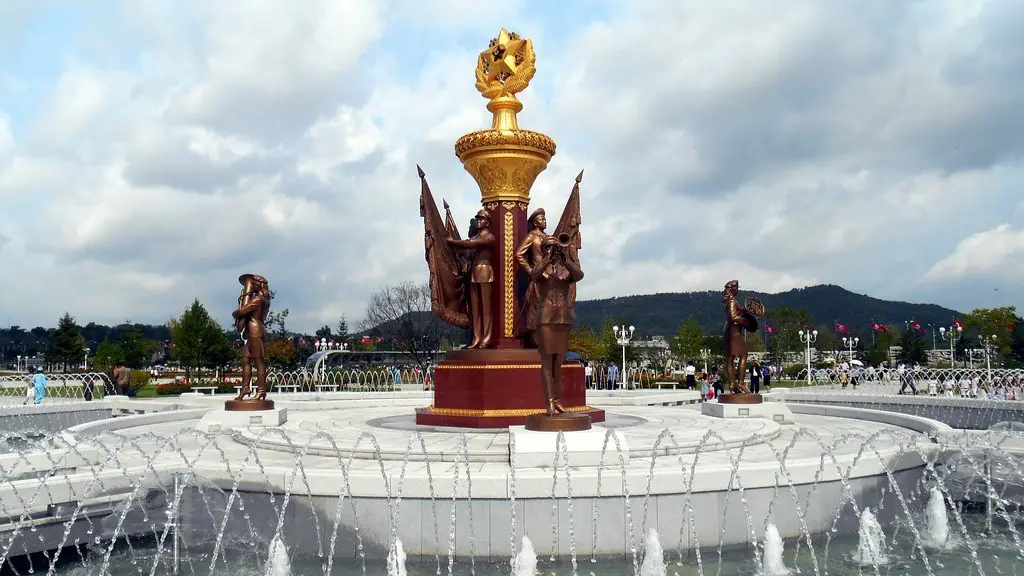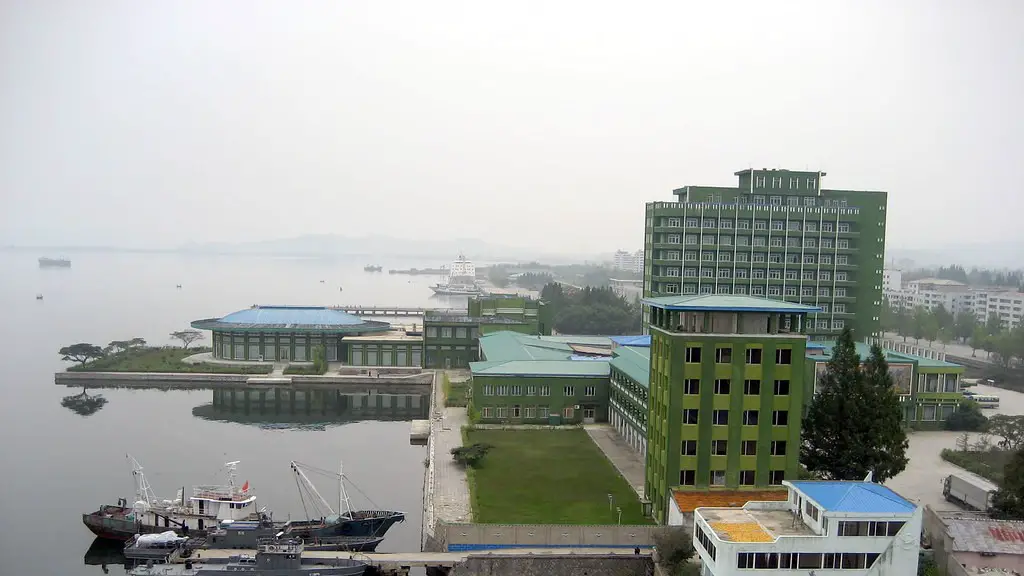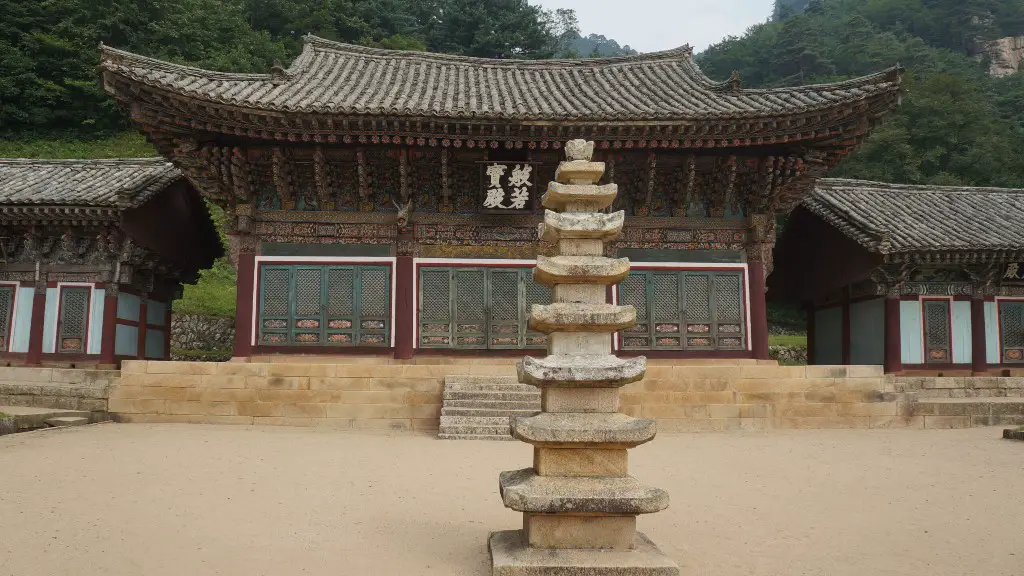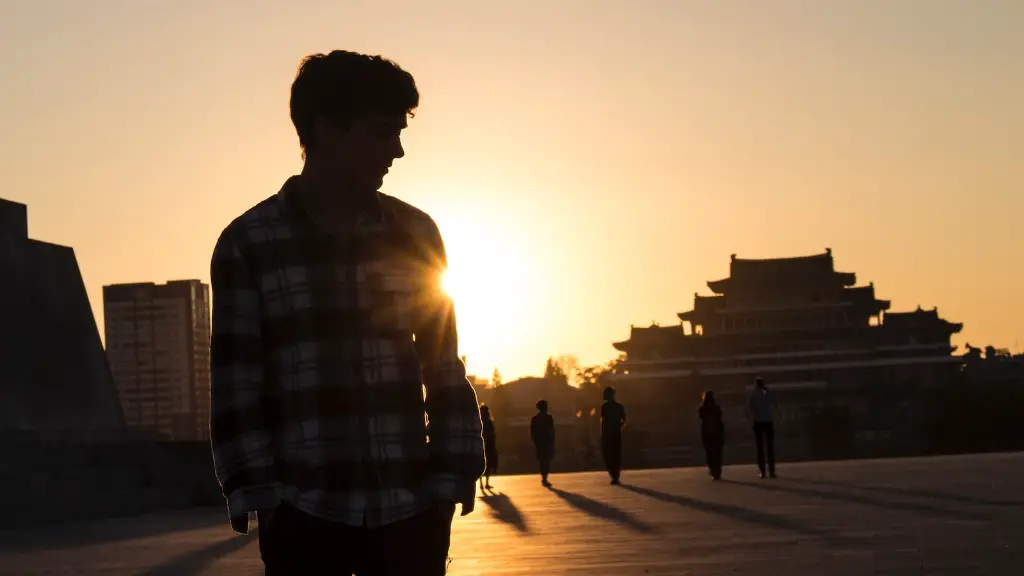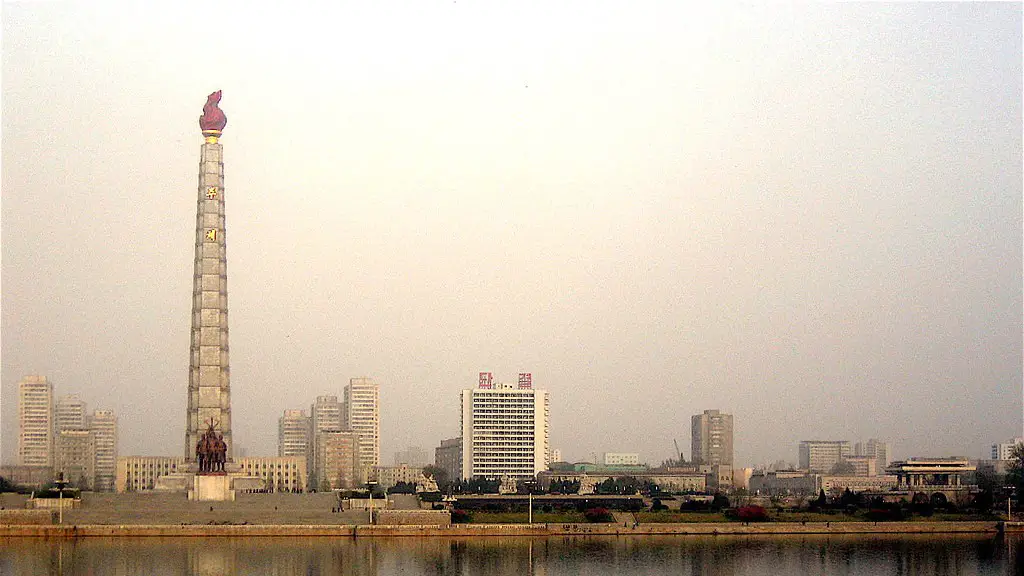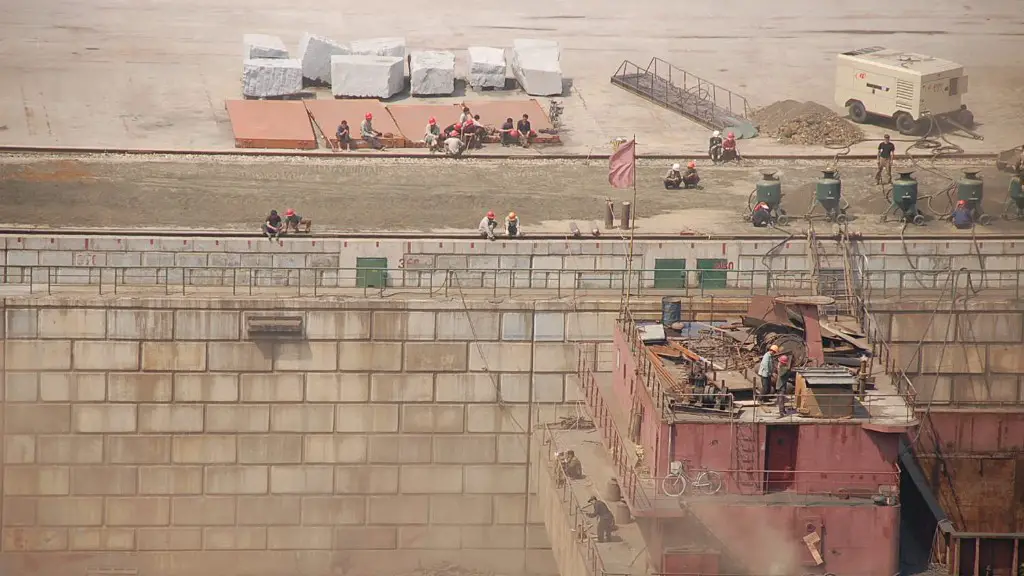Why Is Christmas Banned In North Korea?
North Korea has a volatile relationship with the practice of Christmas, having officially banned the celebration of the holiday back in 2014. As a traditionally Christian celebration, the festivities of Christmas were often seen to be in direct competition with the accepted state religion of Juche, a philosophy propounded by the country’s late leader Kim Il-Sung. Christmas is viewed by the North Korean government as a sign of Western influence, with the country having long sought to keep the influence of the West out of the country.
Christmas has seen a resurgence of sorts in recent decades, with an unverified report in 2011 claiming that the celebration was being quietly permitted in the country, with holiday displays and seasonal decorations being put up. However, official restrictions alleging the celebration has since been fully restored, with an official decree issued in 2014 claiming that any vestiges of the holiday should be confiscated and destroyed.
In an official report, the North Korean government stated that the celebration of Christmas was intended to give opportunities to Western powers to undermine the North Korean ideology. Christmas, the report claimed, was nothing more than a tool used by the West to propagate imperialistic influence.
The removal of Christmas comes after a long-lasting duel with the country’s traditional religion Juche. Juche is a philosophy popularised by the Kims, and has attempted to cast aside aspects of both Christianity and Buddhism, with the family attempting to put themselves in a god-like position with the country’s subjects. Christmas challenges these attempts, given the overt religious messages suggested by the celebration.
On an individual level, the ban has seen a mixed reaction from the people of North Korea. Given the restrictions on the nation’s media, any reaction to the ban outside of official given reports is often difficult to assess. Charitable Christmas gifts provide by external organisations have traditionally faced increased scrutiny, with relief efforts also facing stringent restrictions.
At the same time, the reports of Christmas being banned in North Korea have been met with criticism from abroad. The United Nations has heavily cited the ban in their Human Rights Reports on the country, while other organisations such as Amnesty International have also decried the restriction, citing the freedom of religion being denied to the citizens.
The international criticism of the ban has been slow to take effect. The ban on Christmas and other religious practices continues to be in full force, with reports of arrests and incarcerations for taking part in such activities continuing to be reported. The restrictions put on this and other religious celebrations continue to be viewed as a strong violation of human rights by external organisations.
Significance of Christmas for North Koreans
Christmas has always been a significant and special occasion, played an important role in many people’s lives and whether or not they celebrated it. It’s a time of year where people can come together, spread joy, share gifts and create memories, especially for those living in North Korea. Also a time of spiritual reflection that allows people to look back at their actions, faith, and values and allows them to find comfort in their religious beliefs.
Christmas holds particular significance for those in North Korea, as it relates to their specific culture, traditions, and even religious practices. It’s a time of the year where the traditional Christian message of peace, joy, and hope can shine through amid the darkness of the North Korean regime, providing unique insight and inspiration for them to find a way and keep going against all odds.
Christmas is still celebrated among some of the citizens of North Korea and has also become increasingly popular with the increased mobility of North Korean citizens as a result of changes in economic circumstances, allowing certain citizens to travel abroad. This enabled them to experience the true meaning of the Christmas season, which may have further intensified the urge to celebrate the holiday back home.
For most of the citizens in the country, however, the traditional celebration of Christmas on the 25th of December is something they can only dream of. Despite that, however, it is still possible for them to observe some of the spiritual rituals associated with the holiday, such as the singing of carols, fasting and prayer. These are mostly done in secret, but have become increasingly popular in recent years.
The ban on Christmas in North Korea has made it a time that its citizens hope to forget the political and economic controls they endure on a daily basis. People still remain hopeful of the future and yearn for a day when they can enjoy the freedom to practice their faith openly without fear of government sanctions.
Impacts of Christmas Ban
The ban on Christmas in North Korea has created an even greater sense of fear and uncertainty for citizens in the country. With the ban in place, citizens are unable to practice their faith openly and engage in activities that are generally accepted as part of traditional Christmas celebrations. This has resulted in people having to hide their faith and beliefs to avoid possible repercussions from the authorities, making it difficult to openly celebrate Christmas in North Korea.
The ban also limits the access of North Korean citizens to cultural and spiritual activities that are key to Christmas, such as carol singing and the sharing of gifts. Without access to these activities, citizens are unable to fully experience and appreciate the spirit of Christmas. This is further compounded by limitations on access to the internet, which severely restricts the availability of Christmas music and videos.
The ban on Christmas also creates an uneven platform for citizens in the country, with some citizens able to access and take part in Christmas celebrations and activities abroad. This creates an unequal playing field, with those at home unable to enjoy the same level of access and freedom. It also serves to further marginalise and isolate those in North Korea, making it difficult for them to join in the global spirit of Christmas.
The ban on Christmas has broader political implications as well, with the ban being viewed as a sign of the North Korean government’s hardline stance on religious and cultural practices. This further serves to increase the country’s isolation and highlight its lack of tolerance for religious and cultural diversity.
Attempt To Regulate Christmas
The North Korean government has also made attempts to regulate and control Christmas in the country. One of the most prominent examples of this is the creation of a holiday in the country known as the “Great Leader’s Birthday”. This holiday falls on the same day as Christmas, 25th December, and serves to blur the distinction between the two holidays and keep the focus of celebration on the Great Leader.
The government has also attempted to tap into the enthusiasm of Christmas by creating a number of semi-official Christmas-related events in the country. These include the creation of a Christmas fair in the capital city of Pyongyang and a Christmas parade in which citizens take part in a display of choreographed Christmas activities and songs.
The North Korean government also engages in restrictive censorship of Christmas-related items, activities, and events in an attempt to maintain control and ensure that Christmas remains firmly under the radar. This has resulted in the banning of any items such as cards, decorations, and gifts related to Christmas, as well as any activities or events that could be associated with the holiday.
Furthermore, the government has recently begun to make use of technology to ensure that the Christmas ban is enforced. With the implementation of security systems in the country, any religious activities or celebrations related to Christmas can be identified and monitored.
Outlook for Christmas
In spite of the current ban on Christmas in North Korea, there is still hope for the holiday to be celebrated in the country in the future. With recent changes in the country’s economy and the opening up of relations with the international community, there remains the possibility of greater cultural and religious freedom in the country. Christmas could be one of the holidays that could see a revival in North Korea in the near future.
As of now, however, it is still too early to tell whether Christmas will be officially recognised and celebrated in North Korea. With the strict censorship and monitoring of the country’s citizens, it is unlikely that any Christmas-related activities will be allowed in the country any time soon. That being said, there are signs that the nation is gradually beginning to open up and accept more cultural and religious practices, thus providing a glimpse of hope for the future of Christmas in North Korea.
International Reactions
The ban on Christmas in North Korea has been met with outrage and criticism from abroad. Various international organisations and governments have condemned the action and have called for the lifting of the restriction. These organisations, such as the United Nations, have cited the freedom of religion as their reasoning for the call for the Christmas ban to be lifted, and have argued that the current restriction is a violation of human rights.
The international response to the ban has been largely ignored by the North Korean government, with the reasons for the ban going largely unchanged. In spite of this, however, there are signs that the international outcry has been heard, as the country has recently shown a greater acceptance of religious and cultural practices. This suggests that, in spite of the current ban, there could be potential for hope in the future.
Media Representations
The ban on Christmas in North Korea has been widely reported and discussed in the international media. This has served to increase awareness of the restriction and the wider implications this has for the citizens of the country. The media has also enabled a greater focus on the plight of North Korean citizens and allowed for the issue of Christmas to be discussed with a greater focus and intensity.
The media has also played a role in increasing awareness of other human rights abuses in North Korea, such as the widespread suppression of speech and assembly. This has enabled the issues to be addressed in an open and public manner, providing an opportunity for the public to engage with the issues and push for a better outcome.
The media has also been critical of the North Korean government’s attempts to control and suppress Christmas in the country, making the argument that such actions are a violation of human rights and amount to a form of religious persecution. This coverage has served to increase public pressure on the North Korean government to address the issue, and has enabled the public to take a stand against the Christmas ban.
